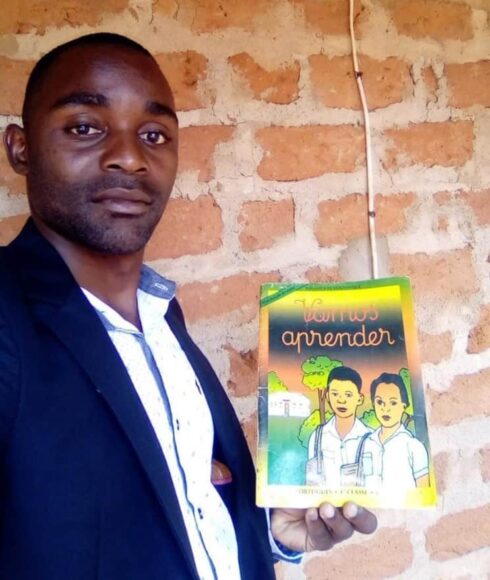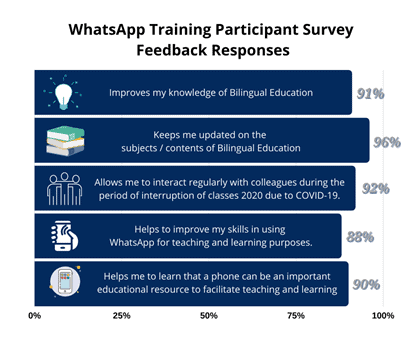Zambizia Province, MoçambiqueCândido Odasse Sandrassone followed in his father’s and sister’s footsteps to become an educator.
“It’s a family gift, so I decided early on that I would follow the same path,”ele diz.

Cândido, who shares his gift by teaching Portuguese and Elomwe, became a bilingual education instructor when the NÓS. Agência for International Development-financiado Vamos Ler! (Vamos ler!) programa came to his school in 2017. O programa works to develop bilingual education, improves national early grade literacy policies, enhances school leadership and increases parental and community engagement in early grade literacy.
Cândido is an advocate of Vamos Ler! because the program develops and prints books written in students’ native-
tongues, which make them more relatable and evoke more fruitful book discussions.
“With bilingual education, I have more opportunities to engage with students, since it is easier to [speak in] their own language, and this facilitates interaction with them and their parents and guardians,”ele diz.
Cândido participates in Vamos Ler! trainings to learn about best practices for teaching a bilingual curriculum and develop leadership skills. He stood out as a talented bilingual educator early on and was selected to receive additional training to become a coach and local teacher-trainer.
Mozambican schools were closed for a full year during the height of the pandemic, and it is not only children who have had to alter how they learn. The project also pivoted to hosting teacher trainings virtually on WhatsApp instead of in person.
The bi-weekly, virtual meeting allows trainers and teachers to continue sharing content, challenges and best practices, which improves their development as professional teachers and leaders.
Vamos Ler! also identified key content to improve instructors’ pedagogical practices and shared modules with the group of teachers and school directors through the mobile app.
Teachers in both Nampula and Zambézia provinces have responded positively to the rollout of WhatsApp trainings.

Mais do que 90 percent of educators surveyed said that the WhatsApp training improved their knowledge about bilingual education. A pesquisa também constatou que 90 percent of respondents felt the program helps them learn how a phone can be an important educational resource to facilitate teaching and learning.
Cândido says that the app is an asset to teachers during virtual learning.
“This bi-weekly experience motivated and encouraged us,”ele diz. “We never want to be without this training now. It’s an innovation in education that’s worth keeping even post-COVID.”
Cândido says that during the pandemic the program has helped him and his peers have access to a virtual forum to share challenges and solutions, further develop their language skills, learn new bilingual teaching methodologies, become more familiar with teaching materials and create a more structured classroom environment.
“We have not stopped interacting with the program even with the emergence of the new pandemic,”ele diz. “We continue to learn through the professional development platform on WhatsApp thanks to the Vamos Ler! Program.”